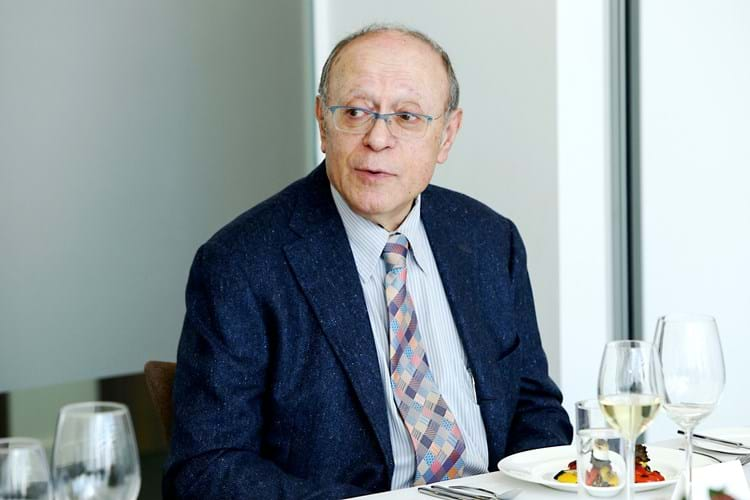As BADA chairman, I have not been sitting on the side-lines during the debate on ivory but neither do I see the need to repeat views and arguments that have already been aired in Antiques Trade Gazette.
Africa’s elephants have been the victims of war and of greed but they have, at no point in history, been the victims of antiques dealers.
Are readers aware of why ivory poaching has intensified in modern times? During the 1960s and 1970s, the civil wars rife in the African continent escalated into a war on the elephant population when rebel groups identified ivory as a source of income. The ivory carvers of Hong Kong provided a ready market that showed little concern for how the ivory was sourced.
Following the wars ex-soldiers, hardened by casual violence and armed with military weapons, continued the slaughter on their own account. China’s rapid economic growth opened further opportunities for the poachers and the threat of extinction of elephants in the wild became a real possibility.
Ivory without cruelty
Prior to the ready availability of military automatic weapons, the risk-to-reward equation was firmly in favour of the elephant and the sensible way to source ivory was from death through natural causes. Extensive research has shown that, if one does not shoot elephants, death is still inevitable. Thus, ivory can be harvested, as in the past, without cruelty and without devastating the population.
Clearly it is too late to revert to that position but we can, at least, accept that this was the case when the wonderful artefacts that we wish to protect were manufactured.
Simple economics and common sense dictate that poaching can only be controlled at the points of supply and demand and therefore only initiatives to cut off demand in China or to fight poachers on the ground in Africa will curtail the slaughter.
Of course, we expect our government and the governments of all enlightened nations to bring in legislation to prevent the distribution and sale of modern ivory and to put in place sufficient deterrents to enforce such legislation.
However, this should always be tempered by the realisation that such actions serve only to demonstrate abhorrence of poaching and have no effect whatsoever in the fight to save the elephant population.
Lack of real evidence
Such legislation should be evidence-based and proportionate and neither of these is present in the legislation proposed in the UK.
All empirical evidence suggests that sales of post-1947 ivory in the UK are negligible and, in almost every case, due to ignorance and without criminal intent. Well-funded NGOs have been trying and failing to provide meaningful evidence of trade in modern ivory within the UK and the representations provided by these organisations have been shown to be as mass produced as the ivory key rings found in the markets of Hong Kong.
There are 650 members of parliament and we have to assume that at least some of them have actually read the evidence and have the sense to understand it.
Emotive arguments
Yet the legislation has passed through two readings and the committee stage without a single voice raised in dissent. Why are rational arguments that have been well presented been ignored in favour of emotive arguments backed by no hard evidence?
The answer, in a single word, is politics.
If politicians have learnt one thing in the past three years, it is that populism trumps rational argument in almost every case. It will not have gone unnoticed that the only politician with the courage to speak against this legislation, BADA president Victoria Borwick, not only lost her seat at the last election but also received a torrent of threats and abuse through social media.
Stronger slogan
Our supporters in parliament are prepared to put forward amendments in both houses but have no expectation of them succeeding. “Save the Elephant” is a much stronger slogan than “Save the Ivory” or indeed “Save the Antiques Trade”.
I would urge those who oppose the ban to be aware of the protocols and process of parliament. I’ve heard it said that despite all evidence and rational argument supporting our case, we are clearly losing the battle.
Marco Forgione, BADA’s chief executive, has forcibly expressed the views of the association and Mark Dodgson, our secretary general, has worked long hours to produce the research, evidence and arguments to support our case. Mark has produced a comprehensive and well-illustrated submission that covers every point raised by those campaigning for the stakeholders.
The truth is not that our advocates have lacked ability but that our opponents have neither the desire nor the will to acknowledge, understand or engage with the arguments.
This does not mean the battle is lost. However, it does mean that we should have no expectation of a change of heart or softening of the legislation from parliament.
‘Unlawful bill’
Our hopes now rest with the judiciary where we can expect a considered and impartial response to rational argument. BADA together with LAPADA has taken legal advice and believe the bill, as it stands, to be potentially unlawful on a number of grounds.
This will necessitate a judicial review, which is an expensive process and we are asking stakeholders to donate to a fighting fund administered by BADA with the backing of LAPADA, auctioneer body SOFAA and the Antiquities Dealers’ Association. At the time of writing we have cash and pledges totalling £125,000, about half of what will be required.
I would encourage all dealers to donate what they can. This legislation affects all of us. Whether a general dealer or specialist, there is almost no category of antiques that does not involve ivory in some form.
If we allow this legislation to pass without a fight, it will not be long before we are defending against the banning of antiques containing coral, tortoiseshell and exotic woods.
This is a shameful attack on three thousand years of artistic endeavour motivated by short-term political advancement and which, unchecked, will do unimaginable and irreversible damage to our culture and our heritage.
BADA asks that donations be pledged via mark@bada.org.uk





